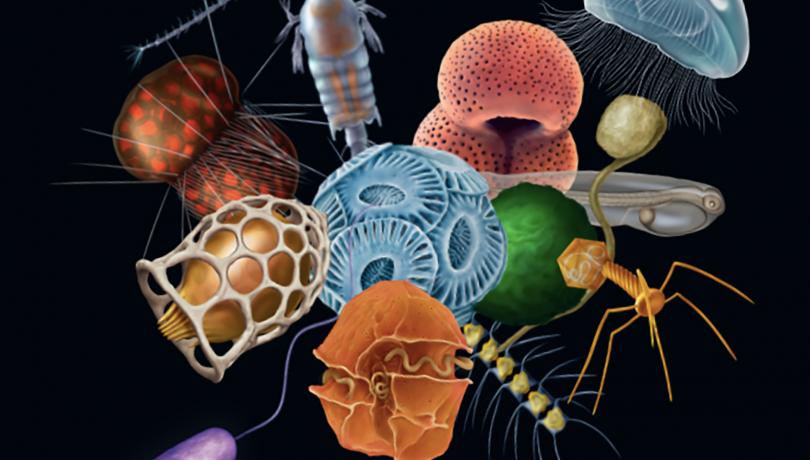The initiative will raise awareness of the role of planktonic communities in maintaining the processes that sustain life on Earth through an interactive website, identification guides and children's stories, among other educational materials.

The global ocean is still largely unknown. Although scientific research in this area of knowledge has increased considerably in recent years, the results of this research have not reached the general public in a clear and massive way.
Against this backdrop, the Institut de Ciències del Mar (ICM-CSIC) and the Escola del Mar de l'Ajuntament de Badalona have promoted the project "PlanctON: motor of life on the ocean planet" which, with the collaboration of the Spanish Foundation for Science and Technology (FECYT) of the Ministry of Science and Innovation, seeks to give visibility to ocean microorganisms and thus bring marine sciences closer to the educational world.
Despite being largely unknown, the planktonic world plays a key role in some of the processes that maintain life on Earth. For example, planktonic organisms include producers of organic matter, which sustain food webs and produce much of the protein we consume.
In addition, some of the organisms that make up these communities produce oxygen and absorb carbon dioxide, while others remineralise organic matter excreted by other organisms, and there are also organisms that play an important role in cloud formation and the planet's climate regulation.
"We want to raise awareness at different educational levels of the key role played by plankton in the proper functioning of the planet. This is why through PlanctON we will try to disseminate existing scientific knowledge about these communities that are key to maintain the health of the ocean and mitigating the effects of climate change", explains Magda Vila, the project coordinator.
Project materials
Materials developed within the framework of this project with the help of scientists, educators and illustrators, among many others, include an interactive website, mock-ups, a video on plankton organisms and a guide to identifying them, the latter being a much sought-after product for schools.
PlanctON will also include a series of actions aimed at raising the profile of pioneering women scientists in their fields of research. These include an exhibition that shows the work of women who have made important contributions in the field of marine and environmental sciences with the aim of contributing to the creation of references among girls and adolescents that will serve as an inspiration for them in the construction of their professional and personal futures.
Finally, a series of workshops are being held in which the youngest children talk with the research staff about the characters in the stories and their adventures, and in which the older children use magnifying glasses and microscopes to learn each and every one of the secrets of plankton, as well as the threats to which it is currently exposed.
An initiative for everyone
PlanctON is an eminently visual project, although part of the resources has been adapted for use by the visually impaired. We are talking about models of different species of plankton that can be manipulated by the public attending the workshops, and a series of four children's stories in audio format.
On the other hand, the resources of the PlanctON project are reaching a highly complex school with which the ICM has been working since 2017 in the framework of the Magnet project of the Fundació Bofill: the Tanit school in Santa Coloma de Gramenet.
"Due to the success achieved and the school's interest in maintaining the advice that we have been providing from the ICM-CSIC, we continue to accompany the training of teachers, who benefit directly from the educational resources developed thanks to the PlanctON project", celebrates the head of Magnet at the ICM-CSIC, Vanessa Balagué, who is also involved in the PlanctON project.
All the educational material generated thanks to PlanctON will be available on the website. Material resources, such as models of plankton organisms - made with 3D printers and fully reproducible - can also be provided for workshops by ICM-CSIC and Escola del Mar staff, even after the end of the project.